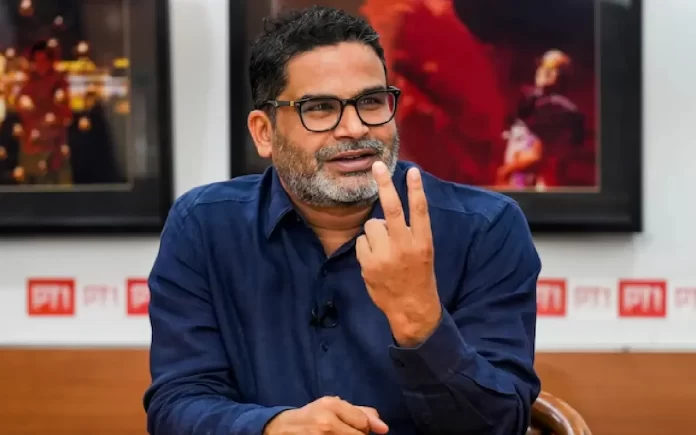New Delhi: Prashant Kishor, the seasoned political strategist, has put forth a suggestion that could potentially reshape the trajectory of Indian politics. He believes that if the Congress party fails to achieve the desired results in the upcoming Lok Sabha elections, Rahul Gandhi should contemplate stepping back from his current role.
In a candid conversation with PTI editors, Kishor expressed his viewpoint, asserting that Rahul Gandhi, despite his earnest efforts, has been unable to steer the Congress effectively over the past decade. He underscored the need for a pragmatic approach, suggesting that if one avenue proves unfruitful after a considerable duration, it might be prudent to explore alternative strategies.
“This, according to me, is also anti-democratic,” remarked Kishor, who had previously crafted a revival blueprint for the Congress party but eventually parted ways due to disparities in executing his proposed strategies.
Kishor urged Gandhi to reflect on the precedent set by his mother, Sonia Gandhi, who temporarily relinquished her political duties following her husband’s demise, allowing P V Narasimha Rao to take the helm in 1991.
Drawing on his extensive experience in political consultancy, Kishor emphasized the importance of self-awareness among leaders, highlighting the necessity to identify and address one’s shortcomings. He lamented that Rahul Gandhi seems to lack this essential trait, believing himself to possess all the answers without acknowledging the need for external assistance.
While acknowledging Gandhi’s brief resignation as Congress president after the party’s electoral setback in 2019, Kishor noted that the subsequent actions did not align with the stated intentions. He revealed an apparent internal dynamic within the Congress, where decisions often hinge on the approval of key figures.
However, Kishor also alluded to a contrasting viewpoint within the Congress ranks, where some members feel frustrated by Gandhi’s perceived indecisiveness.
Asserting the paramountcy of the Congress party over individual personalities, Kishor urged Gandhi not to tether the party’s fate solely to his leadership, especially in light of repeated electoral setbacks.
Addressing Gandhi’s assertions regarding institutional challenges, Kishor conceded partial validity but stressed that the party’s underlying structural flaws demand attention for sustained success.
In response to claims of the Congress’s terminal decline, Kishor dismissed such notions as a misunderstanding of India’s political landscape, citing the party’s historical resilience and adaptability.
Reflecting on his brief tenure with the Congress, Kishor cited disagreements over implementation strategies, particularly regarding the role of the Empowered Action Group, which he deemed incompatible with the party’s constitutional framework.
While the Congress did establish an EAG, Kishor questioned its efficacy, highlighting a lack of tangible outcomes.
Regarding the Aam Aadmi Party’s (AAP) emergence as a national entity, Kishor cast doubt on its ability to supplant the Congress, citing its perceived ideological and institutional weaknesses.
Responding to the BJP’s criticism of dynastic politics, Kishor acknowledged its resonance among the populace, cautioning against overreliance on familial legacies in contemporary politics.
In conclusion, Kishor’s insights underscore the complexities of India’s political landscape, urging introspection and adaptation for enduring relevance.



